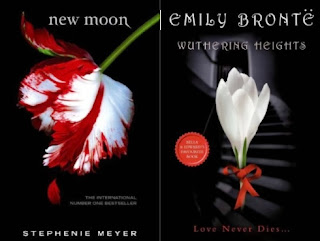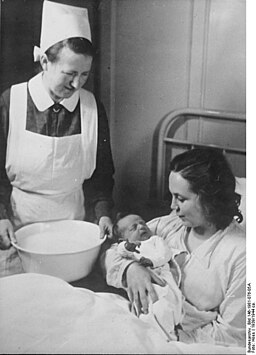
If I've learned how to do one thing as an English major, it's how to write a solid essay. This process took a long time to refine, though, starting way back in Junior Year of high school. (Well, before then, my teachers tried to teach me. Thank you, Ben Sombs. But I was not very receptive at that time, I guess! :) Many of the teachers at Regent University online have been particularly helpful in giving me personalized feedback about what wasn't working in my essays. Gradually, this and writing stories have helped me develop a good process. (The processes of essay-writing and story-writing actually don't differ a whole lot, as I'll note along the way.) I don't always use every step because each essay is a little different; but I wanted to share all the tools I
have used. This post will share everything I wish I knew back when I first started writing essays.
1.) Before I begin read my source (if the essay requires one) and subject or prompt, I find some good study materials to ponder along with my reading; if the essay requires no source, I carefully examine the prompt. Study questions are particularly helpful for research or analysis essays: I find them on websites like
Sparknotes.com, or get them from a teacher. If I can, I find some sort of introduction or context for the source, as well. I also make sure to study my prompt very carefully; my AP English teacher always said "'AP' stands for
'Address the Prompt.'"
2.) Then I begin reading my source and taking notes on themes or anything that could possibly be useful.* For longish research essays, this step could take up quite a bit of time. But...I shut up and eat my peas. That's just how writing goes, sometimes! Hence why I like to get started on this a week or two before my essay is due.
*If I don't need a source, I just brainstorm about my topic and thesis. When I finish brainstorming, I skip to
step 4 on this list.
Notes are like mind mulch. Good seeds come from mind mulch. (To see how I make mind mulch for stories, check out this post.)
3.) Once I'm finished reading, I just write about the material for a while in an effort to pin down topic ideas. Actually, sometimes I'm not finished reading
everything, yet, if this is a research essay; but I make sure to constantly ask, "What is the author of the source trying to tell me?" as I do read and after I finish a source. As I observe main points and themes (for which the study questions come in handy), I keep asking myself what might be useful for my thesis. Throughout this step and the rest, I ask myself question after question about the material and my own notes so I can begin to understand it all and make connections. I describe this process
in this post, if you are curious about it. Although I describe it there in terms of story-writing, it works exactly the same way in essay-writing.
4.) When I've brainstormed everything I can possibly think of to say on the sources and topics, I go back over my notes and highlight the best stuff I find there. This mysterious "best stuff" will often be made up of conclusions I've drawn from the rest of the mass. Sometimes I'll spend a whole page or more just coming to one conclusion. Most teachers never tell you that lots of "eh-but-necessary notes" happen
before the good stuff happens. Once in a while, the study questions yield good stuff immediately. But by the time I finished my last essay, an analysis of Daniel Defoe's
Moll Flanders, I ended up with a whopping six pages of messy notes on top of the four pages of my essay. And each note brought me closer to "the end."
5.) I compile the "good stuff" onto a new page or word document, separating it from the leftovers. Typically, by this point, some sort of central idea is beginning to percolate in the back of my mind, so I pick the notes that fit that idea. But I make sure to save the old leftover notes in case I change my mind later.
6.) At this point, I might need to take a break. Emptying my brain is usually exhausting, if I do it right.
7.) Next, I make connections between my ideas by scanning and sorting my good notes (and, if necessary, my leftovers). I write s'more, beginning to form ideas for the introduction that will lead me and my readers through the mass of information (though the introduction will not truly take its final shape until later). If I need to, I riffle amongst those old notes I saved. Perhaps I find that I need to expand or change the central idea, or perhaps my exhausted brain picked the wrong central idea at first. Whatever the reason, old notes sometimes come in handy. Because I'm a visual learner, I use
strikethrough text to cross out old ideas when they may have become irrelevant, and I use the
highlighter tool to pick out new "good stuff." Actually, I don't know what the heck a visual learner is, or if I am one, but these two tools sure help! At this point, I am still asking and answering any questions about my own essay or my source the way I described in
that post I mentioned in step 3.
8.) After I've picked some good ideas out of my notes, I develop a thesis. I refine the central idea I've been pondering. It may be tough to find amidst all the possibilities, so I keep them all, for now. My thesis may begin to come to me even before I've finished all my research. And even at this point, my central idea/Frankenstein monster thesis may completely change. I usually panic at this step because
it's hard, but I'm sort of learning to skip that and just keep looking for the best option. The best kind of thesis will not have lots of directions--it will be fairly concise. It will state a firm claim about my topic, one I think I can prove. Everything else I write in this essay will depend upon this one little sentence. Again, highlighting and strikethrough text come in handy.
The thesis is a lot like the premise of a story. Or like God. It is the Alpha and the Omega of your essay.
9.) Once I have my thesis, I move it onto a brand-spankin'-new page. This is a new beginning, because I finally have a focus point for my essay. But I keep my notes in a separate document in case I need them again.
10.) I use my notes to figure out what points to make in support of my thesis. These are called "supporting points," and they will form the backbone of my essay though the body paragraphs. It may take some time to find these main points. I compile all the major ideas I've discovered into the all important introductory paragraph, which is still messy. I compare them with my thesis and pick the best ones.
11.) Once I have some possible "supporting points," there's nothing to do but try them out. I start filling in the spots between the supporting points to see if they actually lead anywhere (they don't always, but there's no way to find that out until I explore them). Yep, more notes! But these notes will eventually become my body paragraphs. I make sure to quote directly from my source to support each of my points. Even supporting points need support.
12.) Once I've filled out my body paragraphs, I start connecting them with transitions. If I can't connect one of my supporting points/body paragraphs, that's alright. I just paste it right near the top of my "notes" documents so I know where to find it, in case I change my mind. I may even erase it using "track changes" if I can't bear to simply remove it (another useful crossover from my story-writing process). Usually, by the time I've finished my essay and I check back on these track change deletions, I have no problem removing them because I've realized they just don't fit. This is how I trick myself into "
killing my darlings."
13.) I tie everything up into a conclusion. I may form the conclusion at any time during the essay, not just at the end. Creating the conclusion helps me see my essay as a whole for the first time. It also forces me to see whether or not all the parts of the essay (introduction, body paragraphs and transitions) fit together. I summarize all of my main points and tie them into my argument, the thesis. And once I've finished with all these parts of the essay--thesis, body paragraphs, transitions and conclusion--there's only one essay component left to write.
14.) I write the introduction of the essay. This may seem backward, but let me explain. My introduction shows the reader the main points I will make and the order I will make them in.* If I don't know those things myself yet, how can I introduce them to my reader? I tinker with my introduction throughout the essay because it gives my essay both form and focus. It shares the "designing principle" (a term from
John Truby's wonderful book The Anatomy of Story) of the essay with my readers--meaning, what will I cover and in what order? For example if I decide I'm going to argue how Moll Flanders changed after each of her (five) marriages in the essay, I might let them know the order: first marriage to last. Readers need to know this. So, to recap: once I've figured out my supporting points and tied them together using the transitions and conclusion, I can officially write "the" perfect intro to my creation
because I finally have all the parts. That's what I write it at the end. Then I've finished my
rough draft! The process gets easier from here on out.
*The introduction also interests the reader in my essay so they'll keep reading. This is called
"hooking" the reader. A "hook" can be a quote, a question, a startling statistic or claim...anything that will interest them, really.
15.) I clean up the draft by clarifying rough spots, fixing typos and making it all-around prettier.
This usually involves taking a step back and letting the work sit for a short time. If I have a few days (I usually don't), I'll come back to the essay and probably be glad I did. Oftentimes I'm too "close" to my work to catch all the typos. I almost always read my paper out loud to myself before turning it in, because that helps even an overloaded brain find the weak spots. Some people print papers out to spot more typos, but that doesn't do much for me. Save a tree. Once in a while I will
change the font as I do a final read-through. This helps catch those final typos because, rather than skimming through all that Times New Roman again, I have to actually look at the words. And then? Then I'm finished.
16.) And I go celebrate. Seriously, that was hard work.
This process is extremely fluid, which can make it stressful. Every essay works out a little bit differently. I always use certain steps, but other steps I only use once in a while. And there is no set time period for writing an essay--often, it takes me
at least a full day of slogging to complete a rough draft. But even sledding, an essay takes hours of diligent work. But once you learn to trust the process (your own process, I mean, not necessarily the one I've laid out here), then it will become a bit less stressful. We Scribblers must simply keep pressing on if we're going to write worth-while essays!
Photo Attribution
By Dbxsoul (Own work) [CC-BY-3.0 (
http://creativecommons.org/licenses/by/3.0)], via Wikimedia Commons





















